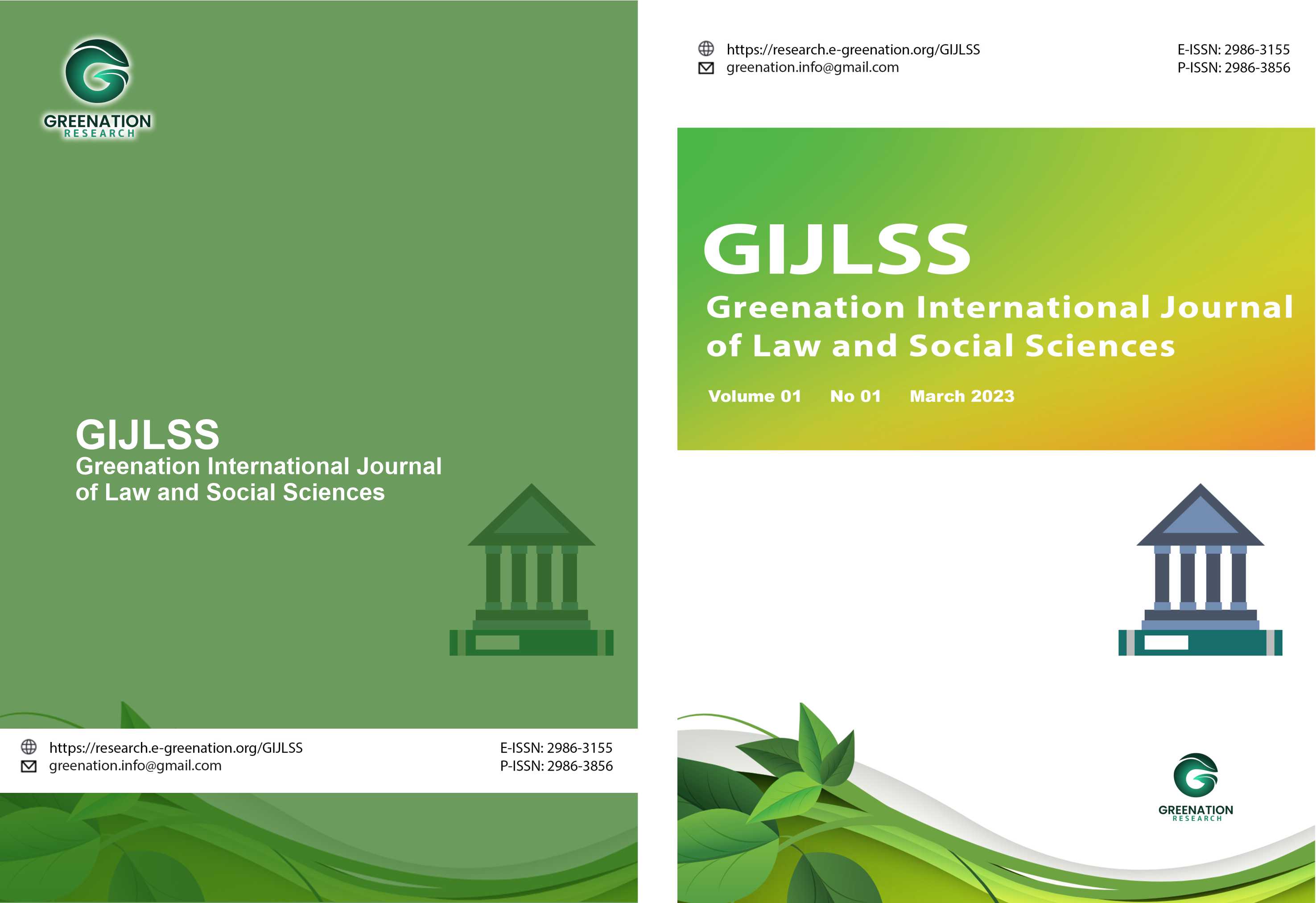New Directions for Criminal Law Politics Post-National Criminal Code Law: Between Restorative and Retributive Justice
DOI:
https://doi.org/10.38035/gijlss.v3i3.581Keywords:
Criminal Law Policy, National Criminal Code, Restorative Justice, Retributive Justice, Legal ReformAbstract
The enactment of Law Number 1 of 2023 concerning the National Criminal Code (KUHP) marks a historic moment in Indonesian criminal law politics. This regulation represents a "decolonial" effort to replace the Dutch-inherited Criminal Code (Wetboek van Strafrecht) with a criminal law system rooted in the Pancasila philosophy and Indonesian values. The most fundamental change lies in the shift in the sentencing paradigm, from one originally oriented towards retributive justice (retribution) to an approach that balances corrective, rehabilitative, and restorative justice. This new approach aims to redefine the relationship between the state, perpetrators, and victims, with a focus on recovery. This study aims to analyze the new direction of Indonesian criminal law politics following the enactment of the National Criminal Code, conceptually comparing the principles of retributive justice in the old Criminal Code with the restorative justice approach in the new Criminal Code, and identifying implementation challenges in this transitional sentencing paradigm. This study uses a normative juridical method. Using a legislative and historical approach, a comparative analysis of the philosophy, principles, and norms of punishment contained in the old Criminal Code and Law No. 1 of 2023 was conducted to map the transformation of criminal law policy. It was found that the National Criminal Code explicitly abandons the philosophy of lex talionis and adopts a more humanistic goal of punishment, reflected in the criminal provisions and actions. Restorative justice is positioned as a complement to the conventional justice system, emphasizing the restoration of victims' losses and the social reintegration of perpetrators, rather than as a complete substitute for retributive justice. This creates a constructive tension, requiring law enforcement officials to make contextual choices between punitive and restorative approaches, rather than adopting a single approach. The greatest challenge lies not in the legal text, but in changing the culture and paradigm of law enforcement officials who have long been accustomed to a retributive system. The National Criminal Code inaugurates a more progressive criminal law policy by placing restorative justice as one of its main pillars. However, its successful implementation depends heavily on cultural transformation within law enforcement. It is recommended that the government prioritize a massive, ongoing socialization and training program for judges, prosecutors, and police to internalize this new paradigm, and encourage legal education institutions to reform their curricula.
References
Akbar FMA (2024). QUALITATIVE AND QUANTITATIVE METHODS IN ISLAMIC STUDIES. Ar Rasyiid: Journal of Islamic Studies 2 (2), 95-112.
Amirudin. (2010). Introduction to Legal Research Methods. Rajawali.
Development Agency Human Resources for Law and Human Rights. (2025). Ready Welcoming the New Criminal Code: BPSDM Conducts Legal Training Reliable Facilitator.
Capera, B. (2021). Justice Restorative As Paradigm Criminal Justice in Indonesia. Lex Renaissance 6 (2).
Dandapala. (2025). Justice Restorative Innovative Steps New National Criminal Law.
Dawn of Pancasila Justice: Reconstruction of the Human Spirit. (2025). Supreme Court of the Republic of Indonesia.
Attorney's Office. (2024). All Depok District Attorney's Office Prosecutors Participate Socialization of the New Criminal Code.
UAD Law. (2023). Expansion of the Principle of Legality Formal To the Principle of Legality Material in the National Criminal Code: Controversy and its Existence.
Supreme Court of the Republic of Indonesia. (2020). Decree of the Director General of the General Court Number 1691/DJU/SK/PS.00/12/2020 concerning Enforcement Guidelines Implementation Justice Restorative.
Supreme Court of the Republic of Indonesia. (2024). Supreme Court Regulation Number 1 of 2024 concerning Guidelines Implementation Justice Restorative in the Environment General Court.
Supreme Court of the Republic of Indonesia. (2025). Paradigm New National Criminal Code.
Supreme Court of the Republic of Indonesia. (2025). Transformation System Justice Indonesian Criminal Law Through.
Moeljatno. (2019). Reform of the Criminal Procedure Code. Proceedings homepage.
Muhammad, A. (2004). Law and Legal Research. Citra Aditya Bakti.
Muladi, & Arief, BN (1984). Theories and Policies Criminal. Alumni.
Muladi. (1995). Selected Chapters on Criminal Law. Diponegoro University Publishing Agency.
Nasution, MI et al. (2021). Update System Criminalization in Indonesia: A Literature Review on the New Criminal Code. Judge Journal 9 (1).
Serui District Court. (2023). Justice Restorative (Restorative Justice).
Regulation Prosecutor's Office Republic of Indonesia Number 15 of 2020 concerning Termination Prosecution Based on Justice Restorative.
Regulation Republic of Indonesia National Police Regulation Number 8 of 2021 concerning Handling Action Criminal Based on Justice Restorative.
Permadi R. (2025). Transformation System Justice Indonesian Criminal Law Through the Supreme Court of the Republic of Indonesia.
Reksodiputro M. (2009). Aligning Legal Reform. National Law Commission of the Republic of Indonesia.
Rewang Rancangan. (2023). Justice Restorative As Paradigm Criminalization in Indonesia.
Saleh, R. (1983). Deeds Criminal Procedure and Responsibility Criminal Law Two Basic Concepts in Criminal Law. Akasara New.
Santiarto HDB (2024). Getting to Know Updates Justice Restorative Justice in Court. Supreme Court of the Republic of Indonesia.
Soerjono Soekanto & Sri Mamudji. (2001). Normative Legal Research: A Review Short. Raja Grafindo.
Sudarto. (1981). Selected Chapters on Criminal Law. Alumni.
Downloads
Published
How to Cite
Issue
Section
License
Copyright (c) 2025 M. Sirot, Bambang Soesatyo

This work is licensed under a Creative Commons Attribution 4.0 International License.
Copyright :
Authors who publish their manuscripts in this journal agree to the following conditions:
- Copyright in each article belongs to the author.
- The author acknowledges that the Greenation International Journal of Law and Social Sciences (GIJLSS) has the right to be the first to publish under a Creative Commons Attribution 4.0 International license (Attribution 4.0 International CC BY 4.0).
- Authors can submit articles separately, arrange the non-exclusive distribution of manuscripts that have been published in this journal to other versions (for example, sent to the author's institutional repository, publication in a book, etc.), by acknowledging that the manuscript has been published for the first time at GIJLSS.























